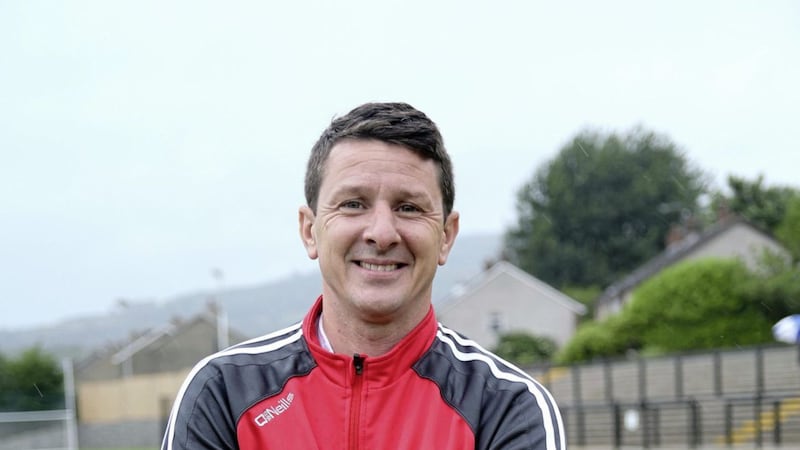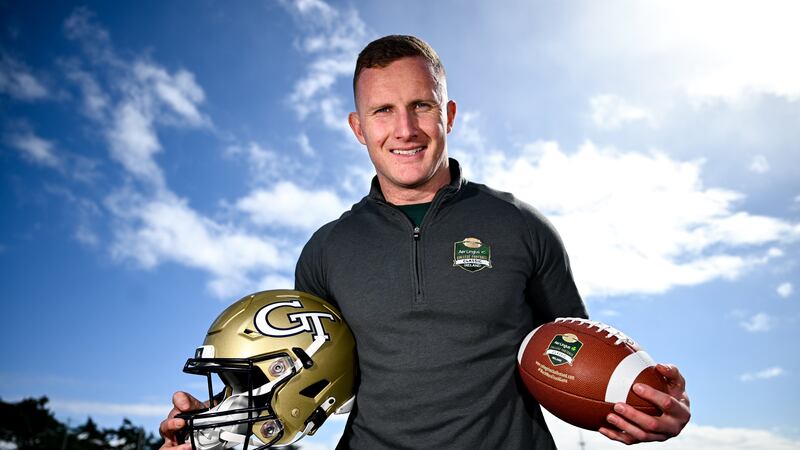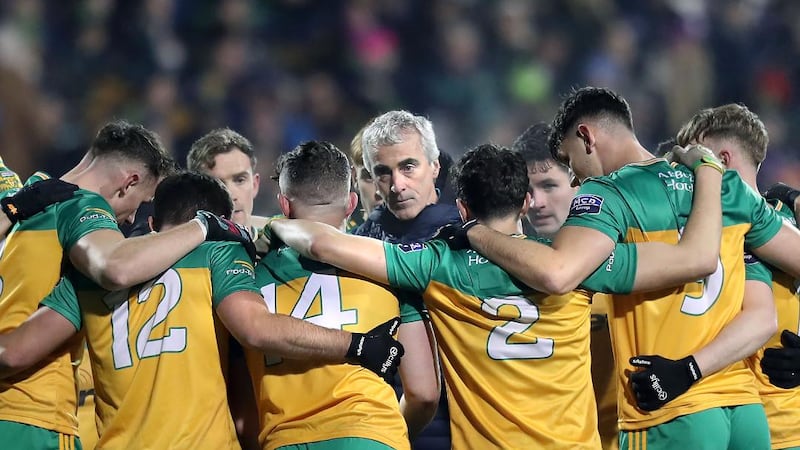NEWLY appointed ‘Gaelfast’ chief Dr Paul Donnelly says Gaelic Games in Belfast can flourish in the coming years – but insists Casement Park must be built to sustain the ambitious project.
Donnelly will also make it a priority of the project to reach out to the protestant community in the city as well as other groups.
Earlier this year, the GAA announced a £1m investment to help increase participation rates in Belfast – Ireland’s second city – with St Paul’s GAC clubman Donnelly tasked with heading up the scheme.
The former Antrim senior hurler has worked in various high-ranking posts in Sport NI, including leading the Policy, Planning and Research sector of the organisation, which he leaves in October.
Donnelly (46) was humbled to be offered the £60,000 Regeneration Manager role of ‘Gaelfast’ after a rigorous interview process and feels it was a natural step to take.
The Belfast native, who will step down from his role as St Paul’s chairman, has already held a series of meetings with the various stakeholders and funders of the project.
The mission of ‘Gaelfast’ is primarily to establish better links between primary and post-primary schools and local clubs in Belfast by using the sports hubs – Cherryvale, Cliftonville Road, Woodlands and Sally Gardens - dotted around the city.
There are currently only six per cent of [traditional] primary school children engaged in playing Gaelic Games in the city.
Donnelly rejected the notion that the ‘Gaelfast’ project was effectively throwing a gauntlet down to GAA clubs in Belfast.
“There are no gauntlets to throw at anyone,” Donnelly insisted.
“This is about engagement, education and empowerment. All clubs need to know what the project is actually about and then the project has to work with and support to understand and engage them in a joint endeavour.
“We need to begin by asking each and every club: ‘Where do you think you are as a club?’; ‘Where do you think you need to be as a club?’; ‘How can this project support you to get there?’
“Based on my own knowledge and understanding, a one-size-fits-all approach will not work. The support will need to be tailored to the needs of the club.”
While the GAA’s initial investment is £1m, Donnelly believes to sustain ‘Gaelfast’ will require the re-establishment of Stormont and for a new Casement Park to be finally built.
“Stormont is integral to the project in terms of ensuring there is a level of sustainability,” Donnelly acknowledged.
“I’m a big supporter of devolved government; I think we should be making decisions for ourselves and we need to get it up and running as quickly as possible, generally.
“But specific to this project would be Casement Park. Casement Park would need some big decisions in and around the end of summer and we need an effective assembly up and running to make decisions around that.”
Asked does he regard ‘Gaelfast’ and Casement Park as linked, he replied: “Completely linked because you’re talking about an Antrim brand, and part of that is having a home.
“Antrim need a home and our home is Casement Park.
“I played on pitches the length and breadth of Ireland, including Croke Park, and the best pitch I ever played on was Casement Park. I have to say, every time I drive by it with my kids or with St Paul’s U14s it breaks my heart to see the state it’s in.
“In terms of how the ‘Gaelfast’ project impacts on Casement Park, how good would it be for primary school and post-primary school kids to come to Casement Park and be part of the participation initiative and watch our ladies footballers, our senior footballers, or hurlers playing in Casement Park?
“But Casement Park is not just good for this project. It’s a vital part of the fabric of west Belfast, and the civic and cultural transformation of Belfast.”
One of Donnelly’s earlier employment roles was working as a community sports development manager in upper Springfield in west Belfast, where a central plank of his work was engaging the protestant community.
“I’m encouraged by the evidence of change,” he said. “Belfast City Council reviewed its pitch provision and began investing rates in enhancing facility provision for Gaelic Games and other sports in the city.
“Arlene Foster, the leader of the DUP, went to this year’s Ulster final. These are signs of things changing.
“I believe Gaelic Games has a potential to engage and unify people in ways that have far-reaching benefits for the city of Belfast, not just in sport but socially and economically as well.
“One of the opportunities in this project is the potential to engage non-traditional schools, non-traditional areas, non-traditional people in the project.”
Despite the sceptics, Donnelly is confident that the ‘Gaelfast’ can deliver on its objectives and has been hugely encouraged by the support he’s already received since his appointment last month.
“We’re a city well used to overcoming challenges. That spirit and tenacity is what it’s going to take and that’s what gives me confidence in leading this challenge.
“I would like to see increased participation in our games and an increased number of skilled, qualified coaches and volunteers in the city. All those things can be achieved.”
Dr Paul Donnelly’s full interview will appear in tomorrow’s Irish News.








